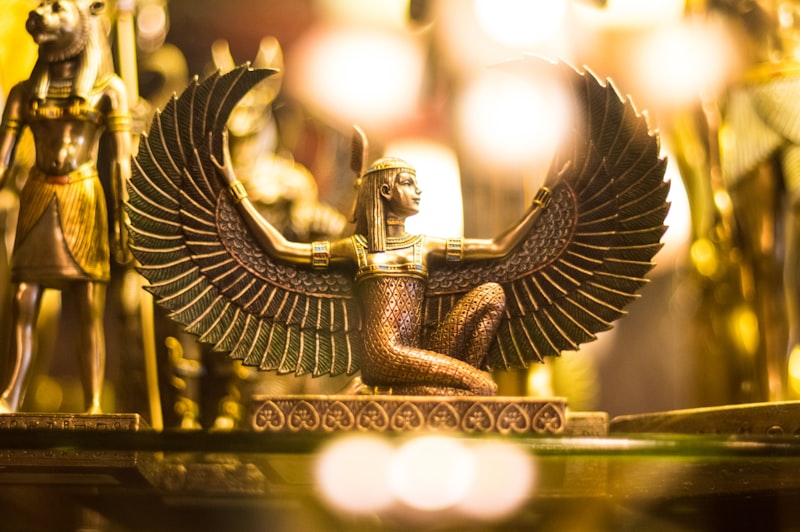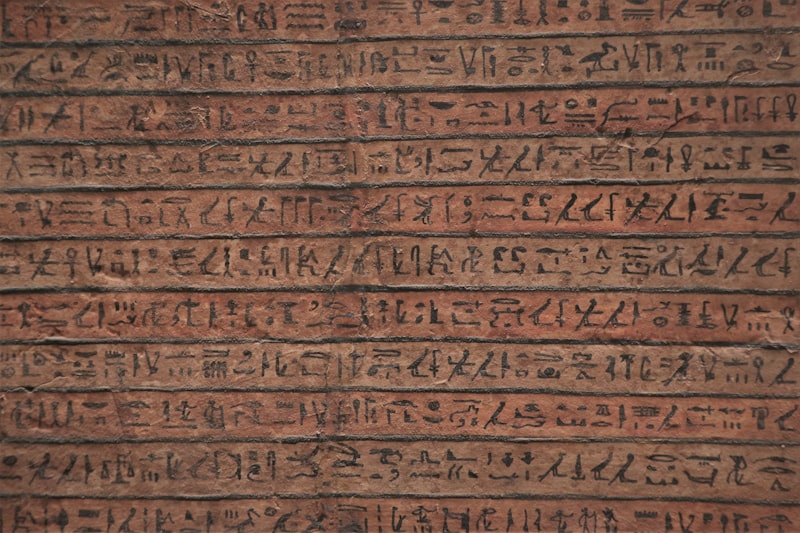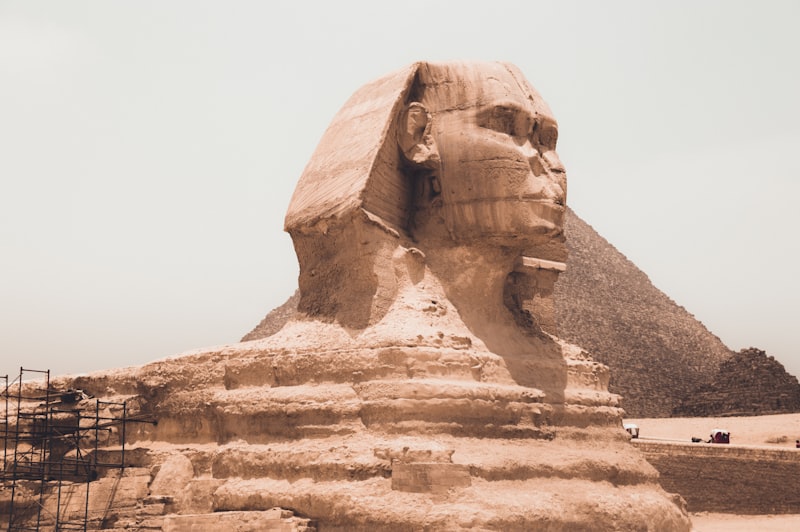- Ancient Egyptians believed dreams were messages from gods that provided valuable insights into an individual’s life, health, and future.
- Dreams were categorized into types such as pious dreams, revelatory dreams, informational dreams, healing dreams, communication with the deceased, symbolic dreams, and divine guidance.
- Dreams about Egypt can hold symbolic meanings related to stability, endurance, resilience, self-reflection, abundance, and communication.
- Dreams about Egypt may also reflect a sense of wonder, a connection to ancient history, a desire for spiritual connection, an exploration of identity, or a search for ancient wisdom.
If you have ever had a dream about Egypt and wondered about its meaning, understanding ancient Egyptian dream interpretation is crucial for gaining wisdom. We will explore the symbolism behind common dream scenarios and their modern interpretation.
Ancient Egyptian Dream Interpretation and Its Importance

Dreams have fascinated and intrigued people for centuries, and the ancient Egyptians were no exception. In fact, their beliefs and practices surrounding dreams were deeply rooted in their culture and religion. They viewed dreams as messages from the gods, which could provide valuable insights into an individual’s life, health, and future.
1. Concept and Origins of Dream Interpretation in Ancient Egypt
The ancient Egyptians were among the first to recognize the significance of dreams and develop a system of dream interpretation. They believed that dreams were a powerful tool for communication between humans and the divine realm. Dreams were seen as a means for the gods to guide and advise people in their daily lives.
The origins of dream interpretation in Ancient Egypt can be traced back to the creation of the world’s oldest dream book, known as the Chester Beatty Papyrus. This ancient text, dating back to 1350 BC, contains a compilation of dreams and their symbolic meanings. Through studying this papyrus, we have gained insights into the common dreams experienced by ancient Egyptians, such as images of smashing stones, losing teeth, and drowning in the Nile.
2. Role of Dreams in Religion and Decision Making
Dreams played a central role in Ancient Egyptian religion and were seen as direct messages from the gods. The ancient Egyptians believed that they could communicate with deities through their dreams. As a result, individuals often sought guidance from their dreams when making important decisions or seeking advice on matters of personal or social significance.
To facilitate this communication with the gods, the ancient Egyptians built dream temples dedicated to specific deities associated with dream interpretation. These temples served as sacred spaces where individuals could sleep in order to be closer to the gods. People believed that by sleeping in these temples, they could increase their chances of receiving divine messages through their dreams.
3. Interpretation Methods and Specialist Roles
Dream interpretation in ancient Egypt was not only limited to individual interpretation but also involved the expertise of priests and dream oracles. These specialists had a deep understanding of symbolic meanings and were skilled in deciphering the messages conveyed through dreams. They played a crucial role in helping individuals understand and interpret their dreams accurately.
One common method of dream interpretation in ancient Egypt was based on puns and word association. The ancient Egyptian language was rich in wordplay and symbolism, allowing interpreters to draw connections between the symbols presented in dreams and their meanings. For example, if someone dreamed of eating donkey meat, this would be interpreted as a symbol of good luck because the word for “donkey” had the same spelling and pronunciation as the word for “great.”
Dream oracles, often priests specializing in dream interpretation, served as intermediaries between individuals and the gods. People would report their dreams to these oracles, who would then analyze the dreams and communicate the messages from the gods to the dreamer. The oracles provided spiritual guidance and advice based on their interpretation of the dreams.
4. Modern Significance of Ancient Egyptian Dream Interpretation
While ancient Egyptian dream interpretation was deeply rooted in their religious beliefs, it is interesting to note that the concept of symbols within dreams has been studied and interpreted in fields such as psychology and neuroscience. Modern-day dream analysis can draw parallels to ancient Egyptian practices, highlighting the enduring fascination with understanding the hidden meanings embedded within our dreams.
Dreams continue to hold a certain mystique, with many people seeking answers to their dreams’ symbolic significance. Understanding ancient Egyptian dream interpretation can provide insights into our psyche, help us explore our unconscious thoughts, and gain clarity on our life’s direction.
Common Dream Scenarios

Dreams have always been a fascinating aspect of the human experience, and ancient civilizations like the Egyptians placed great importance on understanding the meaning behind their dreams. In Ancient Egypt, dreams were believed to be messages from the gods, offering guidance, warnings, and insights into the future. Let’s explore some common dream scenarios in Ancient Egypt and their possible interpretations.
1. Breaking Stones, Losing Teeth & Drowning in Nile
In Ancient Egyptian dream interpretation, dreams featuring images of breaking stones, losing teeth, and drowning in the Nile were quite common. While these dreams may seem scary, they did not necessarily have negative implications. The Egyptians loved puns, so dream interpretations were often based on word meanings.
For example, dreaming about breaking stones symbolized good luck or overcoming obstacles. The word for stones, “shem” in Egyptian, phonetically sounded similar to the word for “bad luck,” providing a play on words.
Losing teeth in a dream was believed to indicate the arrival of prosperity and increased wealth. The word for “teeth” in Egyptian, “irw” or “nif,” had similar phonetics to words meaning “good news” or “rejoicing.”
Dreaming about drowning in the Nile represented the idea of purification and renewal. The Nile was seen as a life-giving force in Ancient Egypt, and being immersed in its waters was seen as a cleansing process.
2. Dreaming of a Deep Well, Mirror, Moon & Large Cat
Another fascinating aspect of Ancient Egyptian dream interpretation was the significance placed on specific symbols within dreams. Here are some common symbols and their meanings:
- Dreaming of a deep well
This symbolized being trapped or confined. It could indicate a sense of being stuck in a particular situation or feeling overwhelmed by emotions. - Seeing oneself in a mirror
This represented self-reflection and introspection. It suggested a need to examine oneself and gain deeper insight into one’s own thoughts and behavior. - A shining moon
This symbolized forgiveness and reconciliation. It indicated the resolution of conflicts or the mending of broken relationships. - Large cat
In Ancient Egyptian culture, cats were highly revered and associated with protection. Dreaming of a large cat represented strength, authority, and guardianship.
3. The Dream Book: Gains or Losses, Emotions & Physical Events
One of the most important aspects of Ancient Egyptian dream interpretation was the use of dream books like the Chester Beatty Papyrus, the oldest dream book in the world. These dream books contained images and interpretations of dreams, offering guidance on various aspects of life. Here are some examples:
- Gains or losses
Many dreams in Ancient Egypt were related to gains or losses, such as receiving an inheritance or experiencing theft or taxation. These dreams were seen as potential indicators of future events. - Emotions
Dreams that revolved around emotional experiences, such as pleasure, anger, deceit, or stopping gossip about the dreamer, were believed to have significance related to personal growth and moral judgment. - Physical Events
Dreams that involved physical events, such as overeating, starvation, or being cured of an illness, were seen as potential indicators of health issues or changes in one’s physical well-being.
It is important to note that dream interpretations in Ancient Egypt were closely tied to their culture and belief system. While these interpretations may differ from modern psychological interpretations of dreams, they provide valuable insights into the ancient Egyptians’ worldview and their understanding of the human mind.
Types of Dreams in Ancient Egyptian Culture

Dreams held a significant place in the ancient Egyptian culture, believed to be messages delivered by the gods to help people with their daily questions and problems. The Egyptians categorized dreams into several types, each serving a specific purpose or delivering a particular message. Let’s explore the different types of dreams in ancient Egyptian culture:
1. Pious Dreams
In pious dreams, a god would appear to demand or request the performance of an act of devotion. These dreams were considered sacred and a direct interaction between the dreamer and a deity. For example, an individual might receive a dream instructing them to build a temple or perform a specific ritual to honor the gods. These dreams provided guidance on how to best worship and serve the gods.
2. Revelatory Dreams
Revelatory dreams were believed to reveal future events or hidden knowledge. They often contained prophetic visions or insights into personal and collective destinies. Individuals who experienced these dreams possessed the ability to foresee upcoming events, such as natural disasters, wars, or important political changes. Sometimes, these dreams also revealed the location of hidden treasures or new sources of medicine.
3. Informational Dreams
Ancient Egyptians also believed that dreams could provide general information about various aspects of life. Whether it was solving a personal issue or gaining insight into a situation, informational dreams offered clarity and guidance. For example, individuals might receive dreams that helped them make important decisions about their careers, relationships, or personal growth. These dreams served as valuable sources of wisdom and advice.
4. Healing Dreams
Dreams were seen as a powerful tool for healing in ancient Egyptian culture. Individuals would seek out healing dreams to find solutions to their physical or psychological ailments. Egyptian physicians often instructed their patients to seek cures for their illnesses in their dreams. By entering a dream state, they believed they could communicate with the gods, who would provide guidance on how to address and heal their afflictions.
5. Communication with the Deceased
Ancient Egyptians believed that dreams could serve as a portal to communicate with the deceased. Through dreams, individuals could connect with their ancestors or departed loved ones. These dreams allowed for conversations, closure, and emotional healing. However, there was also a prevailing fear that engaging in such communication might attract unwanted spirits or malevolent beings from the afterlife.
6. Symbolic Dreams
Symbolism played a crucial role in ancient Egyptian dream interpretation. Many dreams were filled with vivid and often bizarre imagery, each representing specific meanings. For example, dreaming of breaking stones symbolized the falling out of teeth, while seeing one’s face turn into a leopard represented a forthcoming abundant harvest. The Egyptians looked for underlying symbolism in their dreams, providing a deeper understanding of their personal and collective experiences.
7. Divine Guidance
Dreams were considered messages directly from the gods themselves. Ancient Egyptians sought out divine guidance through their dreams, looking for answers to their most pressing questions and concerns. They saw dreams as a means for the gods to communicate and guide them on the right path. It was the belief that one’s dream contained valuable insights and instructions to navigate life’s challenges.
Modern Interpretation of Dreams About Egypt

Dreams have long fascinated people, and throughout history, cultures have sought to understand and interpret their significance. One civilization that placed a large emphasis on dreams was Ancient Egypt. Ancient Egyptians believed that their dreams were messages from the gods. While ancient Egyptian dream interpretations were closely tied to their religion, today, dreams about Egypt can be analyzed from psychological and emotional perspectives.
1. Symbolism in Modern Egypt Related Dreams
Dreams about Egypt can often hold symbolic meanings and may provide insight into your personal thoughts, feelings, or experiences. Here are some common symbols and their interpretations:
- Pyramids
Pyramids represent stability, endurance, and the strength to overcome challenges. Dreaming of pyramids may suggest that you have a solid foundation and are capable of achieving great things. - Desert
The desert represents isolation, self-reflection, and the need for solitude. Dreams of the desert may indicate that you need some time alone to recharge and reflect on your life. - Camel
Camels symbolize resilience and adaptability. Dreaming of a camel may suggest that you have the ability to navigate through difficult situations with grace and determination. - Nile River
The Nile River represents life, fertility, and abundance. Dreams about the Nile may signify a period of growth, creativity, or emotional well-being in your life. - Hieroglyphics
Hieroglyphics symbolize communication, hidden meanings, and a desire for deeper understanding. Dreaming of hieroglyphics may indicate that you are seeking answers or trying to decipher a complex situation in your waking life.
2. Psychological and Emotional Analysis of Egypt Related Dreams
Dreams about Egypt can also be analyzed from psychological and emotional perspectives. Here are some possible interpretations:
- Sense of Wonder
Dreams about Egypt may awaken a sense of wonder and curiosity within you. They may symbolize a desire for adventure, exploration, or a need to break free from routine and experience something new in your life. - Connection to Ancient History
Dreams about Egypt may indicate a deep fascination with ancient history and civilization. They may reflect an interest in exploring your roots, learning about the past, or gaining a sense of wisdom and knowledge. - Desire for Spiritual Connection
Egypt is often associated with spirituality and mysticism. Dreams about Egypt may signify a longing for spiritual growth, connection with your higher self, or a search for meaning and purpose in life. - Exploring Identity
Dreams about Egypt can also reflect an exploration of personal identity and heritage. They may indicate a desire to connect with your ancestral roots or explore your own cultural identity more deeply. - Ancient Wisdom
Dreams about Egypt may symbolize a need for guidance or a search for answers to life’s deeper questions. They may suggest that you are seeking wisdom, guidance, or insight into a particular situation in your waking life.
3. Interpreting Your Own Egypt Related Dreams
When interpreting your own dreams about Egypt, it is essential to consider the context, emotions, and personal experiences associated with the dream. Reflect on what specific symbols and elements in the dream mean to you and how they connect to your current life circumstances.
To analyze your dreams effectively, keep a dream journal by your bedside. Record your dreams immediately upon waking, noting the vivid details, emotions, and symbolism present in the dream. Over time, patterns may emerge that provide valuable insights into your subconscious thoughts and feelings.
Remember that dream interpretation is highly personal, and no one interpretation can apply to all individuals universally. Trust your intuition and approach dream analysis with an open mind.
| Symbol | Interpretation |
|---|---|
| Pyramids | Stability, endurance, strength |
| Desert | Isolation, self-reflection, solitude |
| Camel | Resilience, adaptability |
| Nile River | Life, fertility, abundance |
| Hieroglyphics | Communication, hidden meanings, desire for deeper understanding |
Conclusion
The ancient Egyptians strongly believed in the power of dreams and their ability to guide individuals through life. Dream interpretations allowed them to make sense of their world and seek spiritual guidance. The dreams about Egypt even today can hold significant meanings. Whether seeking personal growth, connecting with one’s origins, or embracing the mystique and history of the country, there is always something to learn from Egyptian dream symbols. If you have ever dreamt of Egypt or feel a strong connection to its history, take a moment to reflect on what it might mean for you personally. Find solace in the wisdom of the ancients and allow yourself to be guided by their timeless teachings.










Leave a Reply